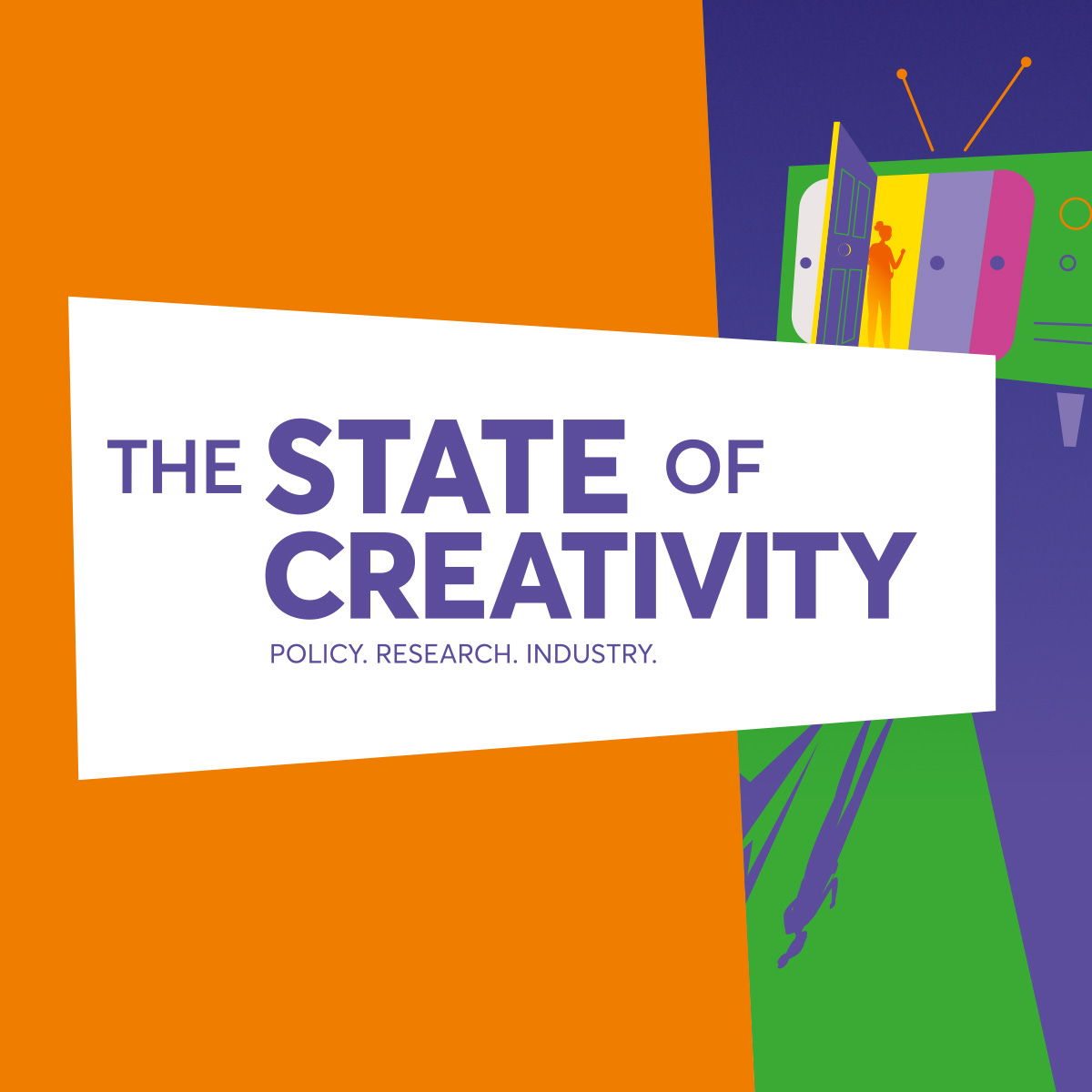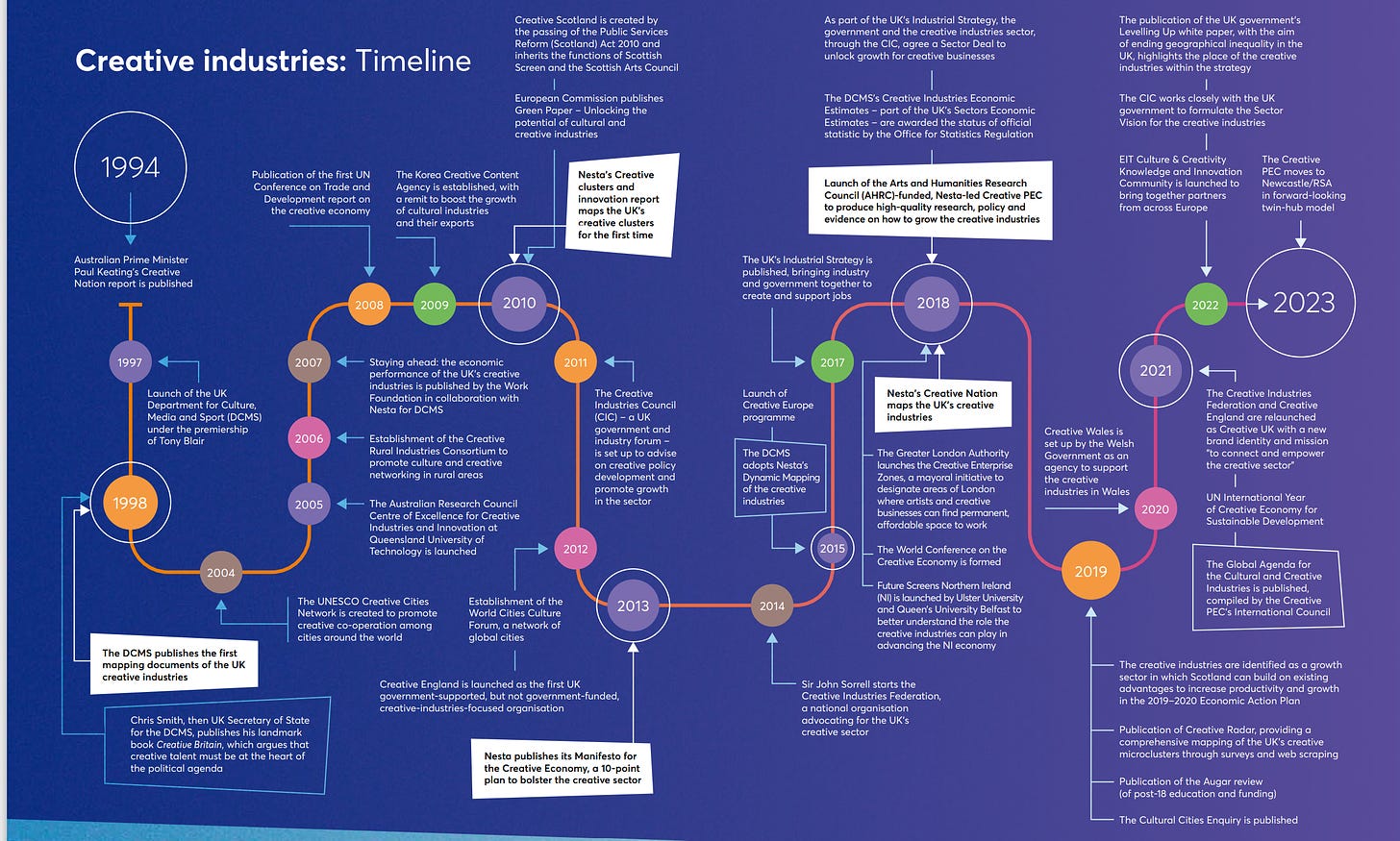State of Creativity 2023
Reflections, analysis and foresight on the policies affecting UK’s Creative Industries
The State of Creativity conference took place at BFI Southbank on 27 April 2023 to explore creative industry policy over recent decades and ask where next for the creative sector.
The superbly organised event by the Creative Industries Policy and Evidence Centre (PEC), was attended by 400+ policymakers, researchers, and industry professionals. The conference programme highlighted priority areas, problems and possible solutions to help boost the future success of UK’s Creative Industries through better policies and research. Key themes discussed by panellists included the role the creative sector can play in tackling the climate emergency and how the creative industries can help narrow regional economic disparities. Watch a recording of the live stream here.
Creative PEC’s new publication is essential reading for all creative professionals and cultural practitioners. The State of Creativity is a landmark report featuring voices and case studies from creative thinkers, industry experts and leading researchers who reflect on the last few decades of the creative industries and speculations on what the future holds for the sector. Commentators advocate a need to prioritise creative education in schools, end unequal access to the arts, and focus on the regenerative power of creativity if the UK is to fully realise the potential of its world-leading creative industries.
A timeline since the era of Cool Britannia and the establishment of the DCMS offers a celebratory interrogation of policymaking in the UK's creative industries.
“The creative industries are no longer an unsung success story in the UK’s industrial strategy, but their place in mainstream policies in areas like education, skills, immigration and the climate emergency is not yet secured.”, says Hasan Bakhshi, Director of the Creative PEC.
“The challenge for the Creative PEC during the next five years is to ensure that policies across government - not just in the Department for Culture, Media and Sport - are grounded in an assessment of Creative Britain’s needs, informed by robust evidence.”, Bakhshi said.
The Creative Industries Policy and Evidence Centre (PEC) works to support the growth of the UK’s creative industries through the production of independent and authoritative evidence and policy advice. Led by Nesta and funded by the Arts and Humanities Research Council as part of the UK Government’s Industrial Strategy, the PEC works with a diverse range of industry partners including Creative UK, and currently comprises a consortium of universities and one joint enterprise from across the UK (Birmingham, Cardiff, Edinburgh, Glasgow, Work Advance, London School of Economics, Manchester, Newcastle, Sussex, and Ulster).
The event, and report, mark an £11 million investment from the AHRC to ensure that the work of the Creative PEC will continue for a further five years. The PEC will move to new hosts in June 2023; a North/South twin-hub model led by Newcastle University, with the RSA.
The next phase of the PEC will build on its previous successes, growing the evidence base by addressing industry and government-identified priorities and advancing research into the longer-term challenges and opportunities facing the sector. As well as producing its own research, the Creative PEC will act as a platform for policy-relevant research produced by others and engage policymakers through embedding researchers in policymakers’ planning and design cycles.
The Creative PEC pledges to enhance the quantity and quality of evidence available to inform policies for the creative industries. The Creative PEC will continue providing vital evidence to inform policy on subjects as varied as R&D funding, creative skills education in schools and universities, and more. The prospect for more robust impartial evidence to inform policy decisions that will support the growth of the UK’s creative industries looks optimistic.
To find out more, visit www.pec.ac.uk and @CreativePEC #StateofCreativity







Thanks for sharing these reflections Yasmin